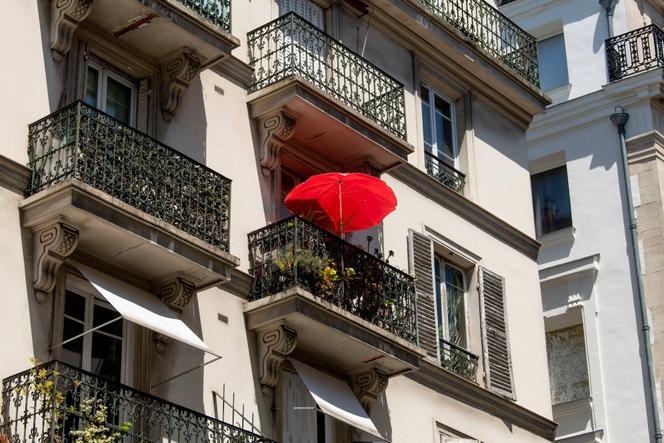


The message produced some unexpected buzz over the summer. In mid-August, Paris Green MP Sandrine Rousseau posted on X about the need to protect oneself from the impending heatwave. "Today, it's going to be between 35°C and 40°C in Paris. Many concrete buildings have no shutters on the windows. Families, children and sick people live there. Global warming is getting out of control and we don't even have shutters... Just shutters," she wrote. The post was widely mocked and received close to two million views and several thousand comments, including "Do you know about this wonderful invention called air conditioning?" or "Let them put up curtains!"
For the past two years, the city of Paris has been holding public meetings on energy renovation in condominiums, aiming to guide homeowners who are often unsure how to tackle the issue. The topic of shutters comes up very frequently during the Q&A session. "During discussions, the subject of summer comfort and habitability of housing during comes up more and more," noted Dan Lert, Paris deputy mayor in charge of the environmental transition and the climate plan. "Paris is a very built-up city, constructed in a temperate climate – no longer the present climate – so buildings are not adapted."
In the spring of 2023, a study by the scientific journal The Lancet Planetary Health placed the French capital at the top of European cities with the highest risk of mortality in the event of a heatwave. "It can be 70°C or even 80°C on a zinc roof. If it's not insulated, the dwelling below is uninhabitable, with temperatures of 30°C at night," added Lert.
The French Environment and Energy Management Agency (ADEME) has pointed out that the presence of shutters can reduce indoor temperatures by 2°C when the outside temperature is at its highest. Closing shutters during the day "can reduce air-conditioning requirements by 60%," added the agency. Less costly than other thermal renovation measures, this simple solution is still subject to planning permission, however, and may come up against the refusal of the Building Architects of France (ABF), a professional advisory organization responsible for protecting heritage under the supervision of the ministry of culture. In Paris, a city extremely rich in historic monuments, 97% of built-up areas are subject to ABF views, with three-quarters of these views being binding.
In many cases, ABF dogma regarding external solar protection is an obstacle for energy renovation specialists. "There's no clear-cut rule that we can consult upstream, as each ABF [advisor] issues a personal opinion," explained Charles Lemonnier, project manager for energy, architecture and urban planning at the Paris Climate Agency, the one-stop shop for advising and supporting energy renovation in the capital. "We approach the subject first of all through history, knowing that in each period there have been different means of concealing light, and that external shutters arrived late in the history of architecture, becoming widespread in the 18th and 19th centuries," said Fabien Sénéchal, president of the ABF National Association.
You have 54.95% of this article left to read. The rest is for subscribers only.
